-
Available until 4pm
0800 092 4444 - Book an appointment
-
-
Africa
-
Arabia
-
Asia
-
Australasia & Pacific
-
Caribbean
-
Central America
-
Europe
-
Indian Ocean
-
South East Asia
-
North America
- View all destinations
- Holiday type
- Brochures
- Collections
- Articles
- Where to go when
Beach
We’re here to tailor-make a beach holiday that’s right for you
Family
Incredible Family holidays from Kuoni, adventures your family will always remember.
All inclusive
Our hand-picked all-inclusive holidays include, boutique, family & wellness resorts.
Honeymoons
Romantic honeymoon package you’ll remember for the rest of your lives.
City breaks
Our hand-picked luxury city breaks in Europe, Asia, Africa, Middle East and the USA
Adult only
Romantic retreats and group get-togethers on our adults-only holidays
Safari holidays
Let us take you on safari in Africa for the best animal viewing on the planet.
LGBTQ+
Romantic retreats or special occasions on our LGBTQ+ holidays
Multi-centre
Combine different destinations, resorts and tours for a dream multi-centre.
Villas
Enjoy the best of both worlds: a luxurious and out-of-the-way villa holiday at a resort
Spa & wellness
Handpicked spa & wellness retreats, pampering or activity holidays all tailormade by Kuoni
Self drive
Create a tailor-made self-drive itinerary for a trip to immerse yourself in outdoor life.
Rail
Sit back, relax and enjoy the view during one of our luxurious train journeys
Beach & beyond
Mix seaside bliss with a side of adventure
Bucket-list trips
Tick off those trips you've always dreamt of
Experience everything, miss nothing
One stop’s never enough if you want to delve a little deeper into your destination.
Family favourites
Family holiday ideas from all-in stay put all inclusives to full-on safari adventures
Jet Set, Ready, Go
The temperatures are on the up, the flowers are blooming, and daylight is winning out. It’s time to start daydreaming of those hazy summer days.
Multi-stop holidays
Take the hassle out of holiday planning with these prepped-and-ready easy adventures.
Reset & Revive
Unplug & play with holidays that take you to places where there’s a focus on the rejuvenation of mind, body and soul.
Seaside breaks
Everything’s taken care and the pressure’s off for the whole crew on an oceanfront escape.
Where the wild things are
A world full of wildlife
Where to go when in the school holidays
Which is better: Mauritius or Maldives?
Explore Jamaica: our top multi-centre combos
The best things to do in Borneo
Secrets to planning the ultimate Californian road trip
Turquoise dreams: A guide to the Indian Ocean islands
Offbeat gems: The Caribbean's hidden treasures
What to do in Canada: the ultimate bucket list
Speak to one of our experts now about this offer
Chobe National Park Hotels & Resorts
-
-
Rating {{ ratingFilters.length }}
- 4 Stars{{ratingsCountWith('4 Stars')}}
- 4.5 Stars{{ratingsCountWith('4.5 Stars')}}
- 5 Stars{{ratingsCountWith('5 Stars')}}
-
Holiday type {{ holidayTypeFilters.length }}
- Honeymoons{{holidayTypeCountWith('Honeymoons')}}
- Luxury{{holidayTypeCountWith('Luxury')}}
- Safari holidays{{holidayTypeCountWith('Safari holidays')}}
-
-
- Kuoni recommended
- Name (A-Z)
- Rating (High to Low)
- Rating (Low to High)
- Price (High to Low)
- Price (Low to High)
- {{ filter.text }}
- Clear all
Chobe Game Lodge Safari
Chobe Game Lodge offers riverboat safaris as well as 4×4 game drives and, as the only camp located inside Chobe National Park, there is the chance to see wildlife before anyone else arrives. Game drives will take you deep into the national park, which is home to the largest population of elephants in Africa. On the riverboat safaris, you will glide silently along the Chobe. You will stop for sundowners in a big open area where animals come to drink.
Morning game drives set off at around 5.30am, stopping for coffee and biscuits in the bush halfway through, and in the afternoon you will leave at 3.30pm before returning to the lodge for sundowners. You will go deep into the national park, which is home to the largest population of elephants in Africa – around 120,000. You may see large herds of elephants as well as lions, buffaloes, wildebeest, giraffes, antelopes and, if you’re lucky, the occasional leopard lazing in the trees. Lechwe flats is a favourite game viewing area with guests and the landscapes are amazing too; you can see the beautiful Chobe River with views across to Namibia as you cross the dry, dusty plains.
On the riverboat safaris, you will head out in the afternoon in small pontoons, which are all electric and solar-powered. Glide silently along the Chobe, heading west away from the other boats, so that you are usually the only boat in the area. You may spot crocodiles and hippos in the water as well as elephants and other animals on the riverbank. There are lots of birds too, including fish eagles hunting from the river. After a couple of hours, you will stop for sundowners in a big open area beside the river, where animals come to drink. Watch the sun set over the river, which is always spectacular – all deep reds and oranges, reflecting on the water below.
Chobe Game Lodge Eco-Tour
Sustainability is a big thing at Chobe Game Lodge and, as the only camp inside the national park, they try to minimise their impact on the natural environment as much as possible. Behind-the-scenes eco-tours are run for guests wanting to learn more. See the back-of-house kitchen, which runs on gas made from biodegradable waste at their biogas plant, see the recycling plant, grey water facility and workshop.
The recycling processes include glass crushing to manufacture bricks on-site, which are then donated to the local community to be used for housing. Plastic bottles are crushed to be recycled by the supplier, and grey water is reused to keep the grounds green. Around 95% of all waste at the lodge is recycled and the boardwalk overlooking the Chobe is built from recycled timber-plastic. They were the first camp in Botswana to launch electric-powered safari vehicles, and the boats are also electric as well as solar-powered.
They also work with local communities, training young people to develop their skills, and they fund several initiatives, including the Turning Heads Beauty Salon, which employs vulnerable women. Two-thirds of the lodge staff are women and it was here Botswana’s first all-female guiding team began.
Safari in the Savute
Tucked away in the remote southwestern part of Chobe National Park is the Savute area. This fascinating region has been shaped by the unpredictability of the Savute Channel, sometimes remaining dry for years, other times the ancient waterways fill the Savute Marsh. Guests can experience its diverse wildlife and ancient terrain in a variety of ways.
The Savute is an amazing area for lions. You can head out on game drives into the vast, flat plains surrounding your lodge and spot their sandy coloured bodies in huge numbers of twenty or thirty, prowling the savanna in search of prey. You may also see other predators like leopard and cheetah that reside in the hilly terrain.
Visit the corridor of huge baobab trees. Their trunks are three times an average arm span and as you sip on a gin and tonic while admiring these ancient giants as the sun slowly sets, it's the perfect Instagram moment. If you’re feeling energetic you can climb the nearby hill to observe San Bushmen paintings which date back over 1,500 years old before returning to your lodge for star gazing.
Talk to an expert today
Your dream holiday is just a phone call away
Call us on 0800 294 9706Monday: 10am - 5pm
Tuesday: 10am - 5pm
Wednesday: 10am - 5pm
Thursday: 10am - 5pm
Friday: 10am - 5pm
Saturday: 10am - 5pm
Sunday: Closed
Visit your local Kuoni store
Find your nearest storeIn-person, virtual or phone
Get face-to-face advice from our friendly team
Email enquiry
Tell us what you’re planning and let our experts help you with your holiday

_w=200_h=165_pjpg.jpg?v=31ed107df30f4bbc280d774620868eb5f6d1e16d)
_w=200_h=158_pjpg.jpg?v=31ed107df30f4bbc280d774620868eb5f6d1e16d)



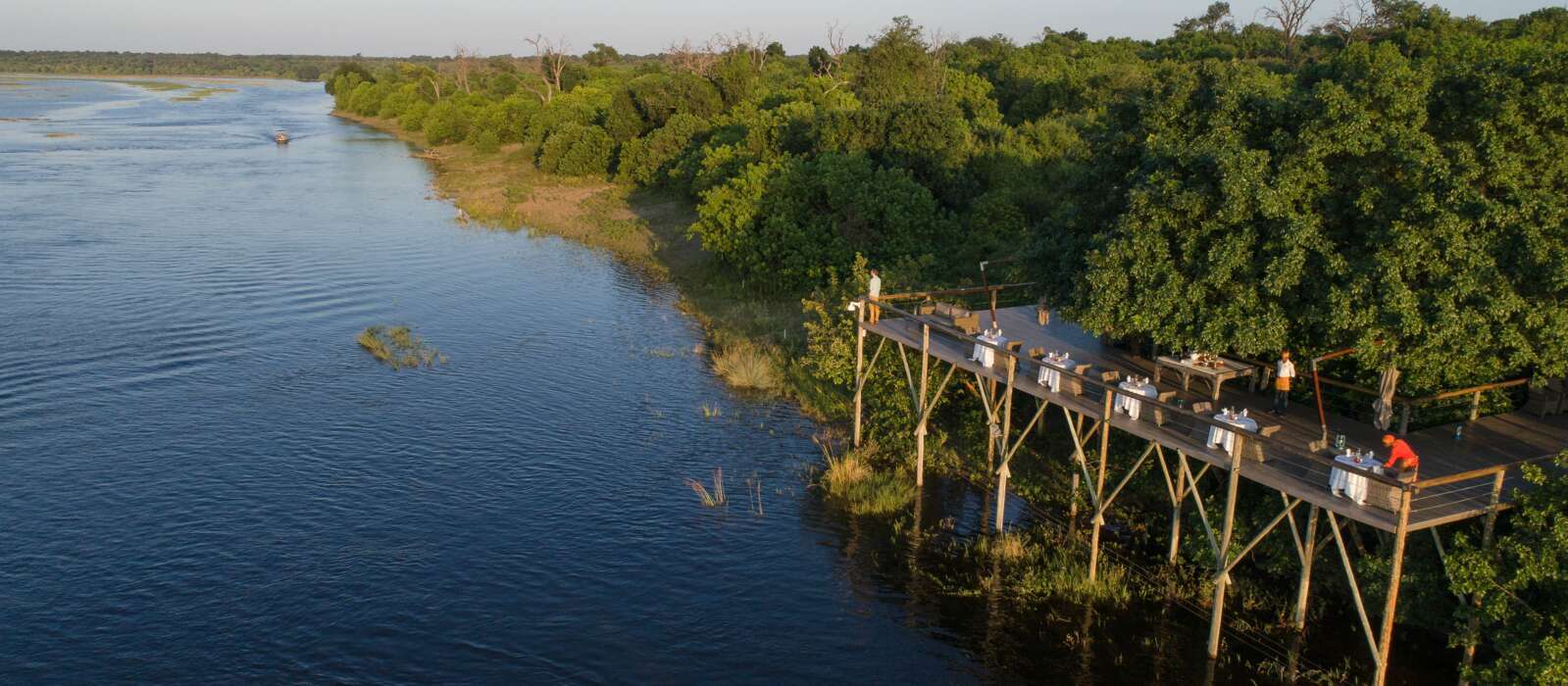
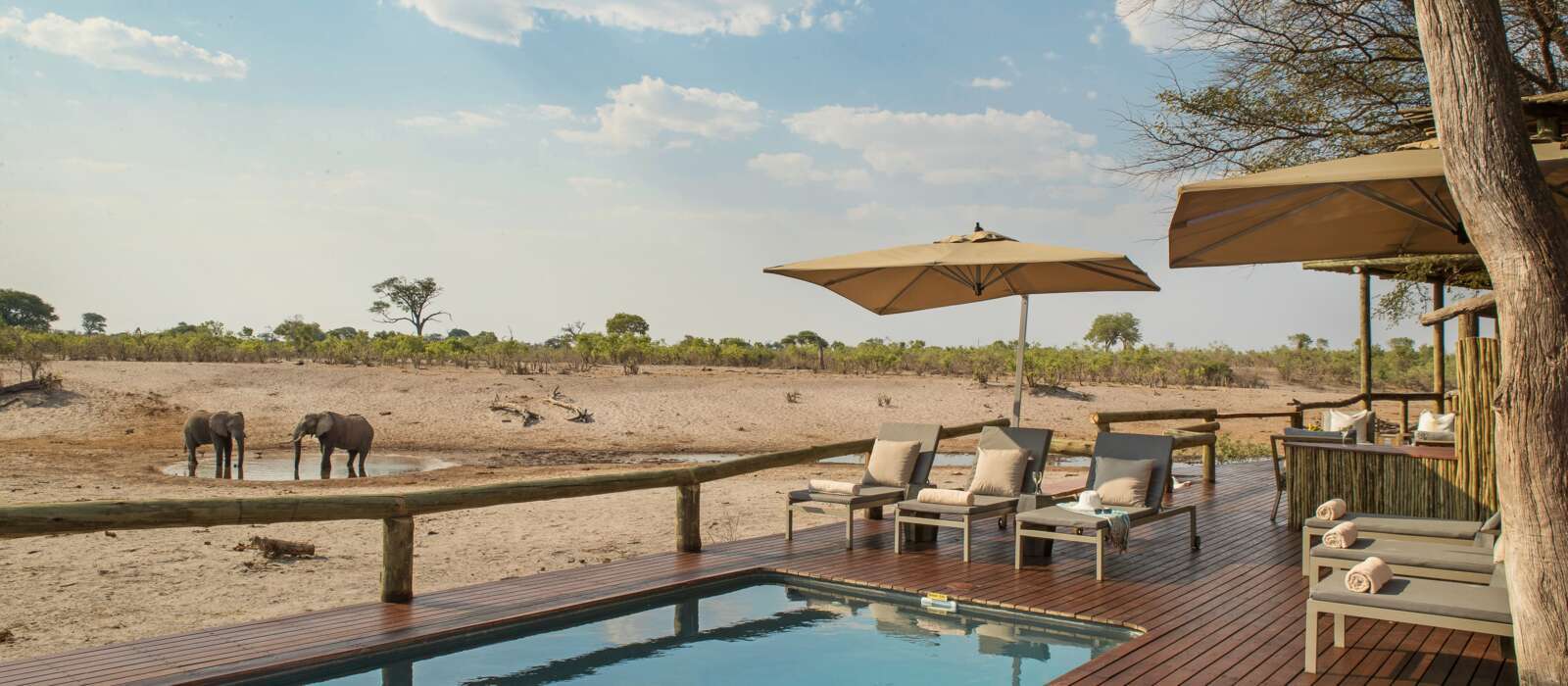
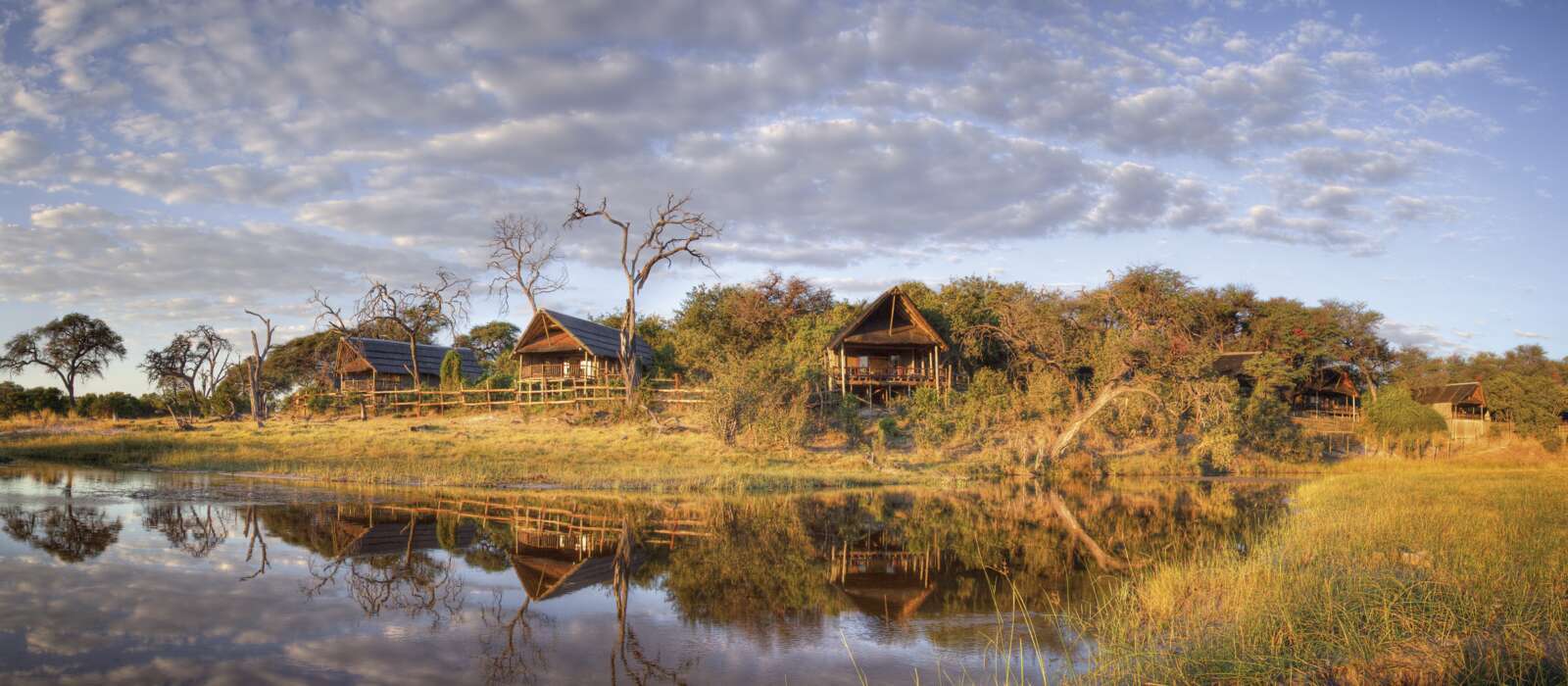
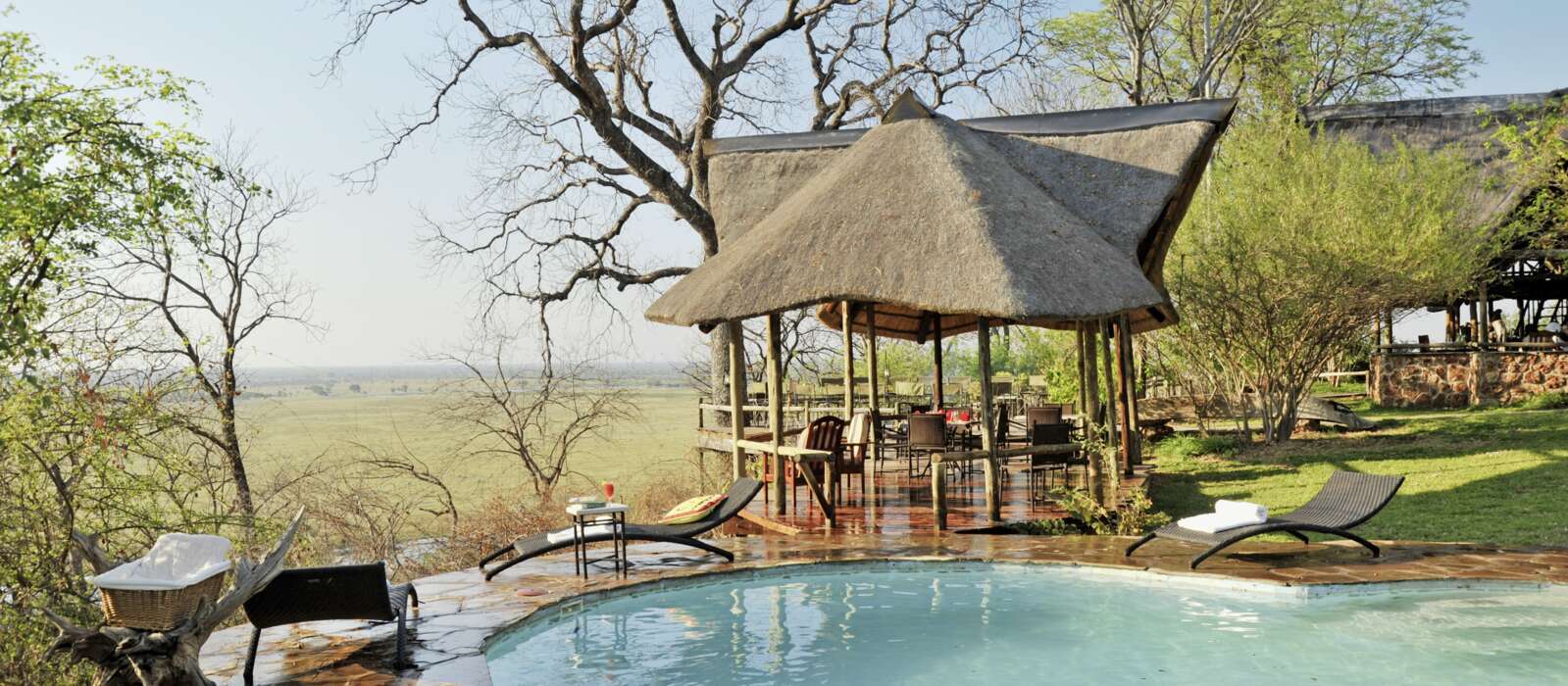
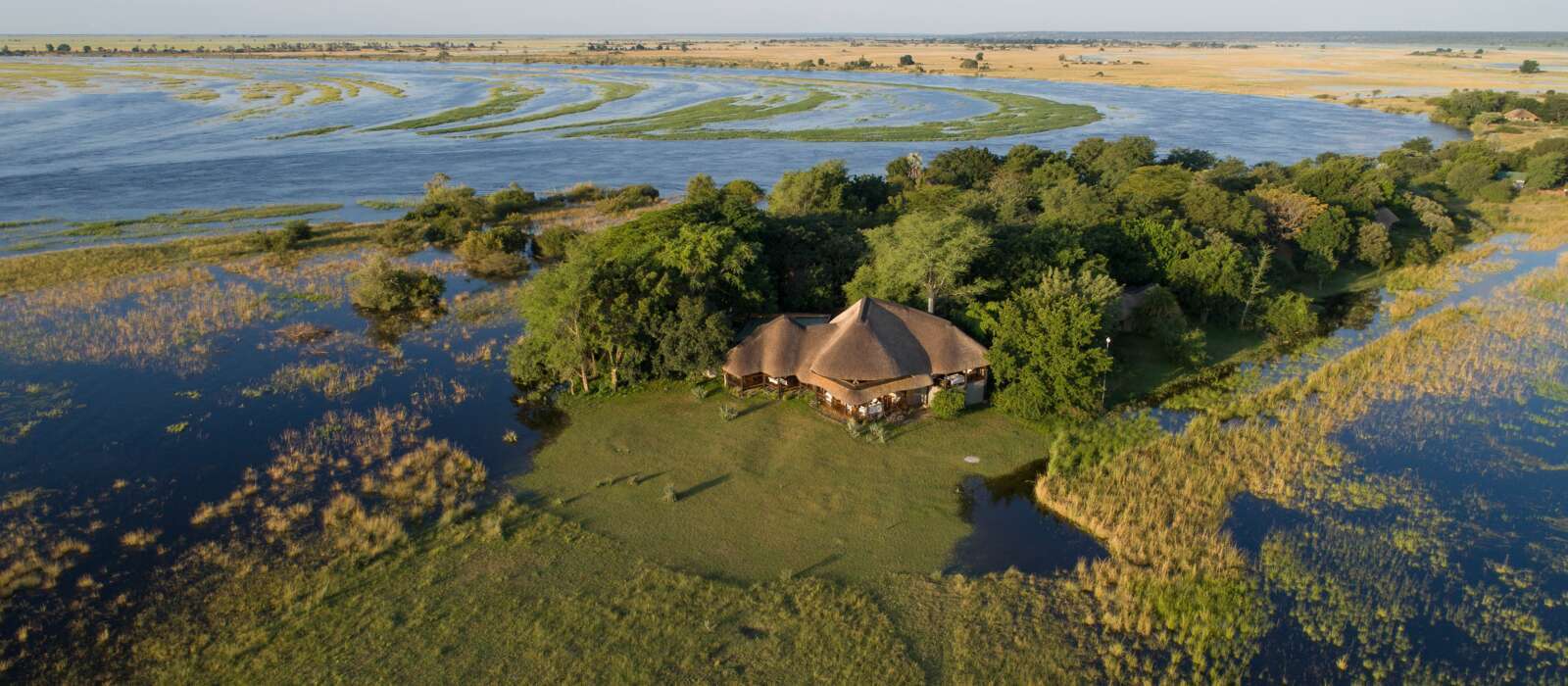

_w=24_h=25.png?v=31ed107df30f4bbc280d774620868eb5f6d1e16d)
_w=24_h=25.png?v=31ed107df30f4bbc280d774620868eb5f6d1e16d)
_w=24_h=25.png?v=31ed107df30f4bbc280d774620868eb5f6d1e16d)